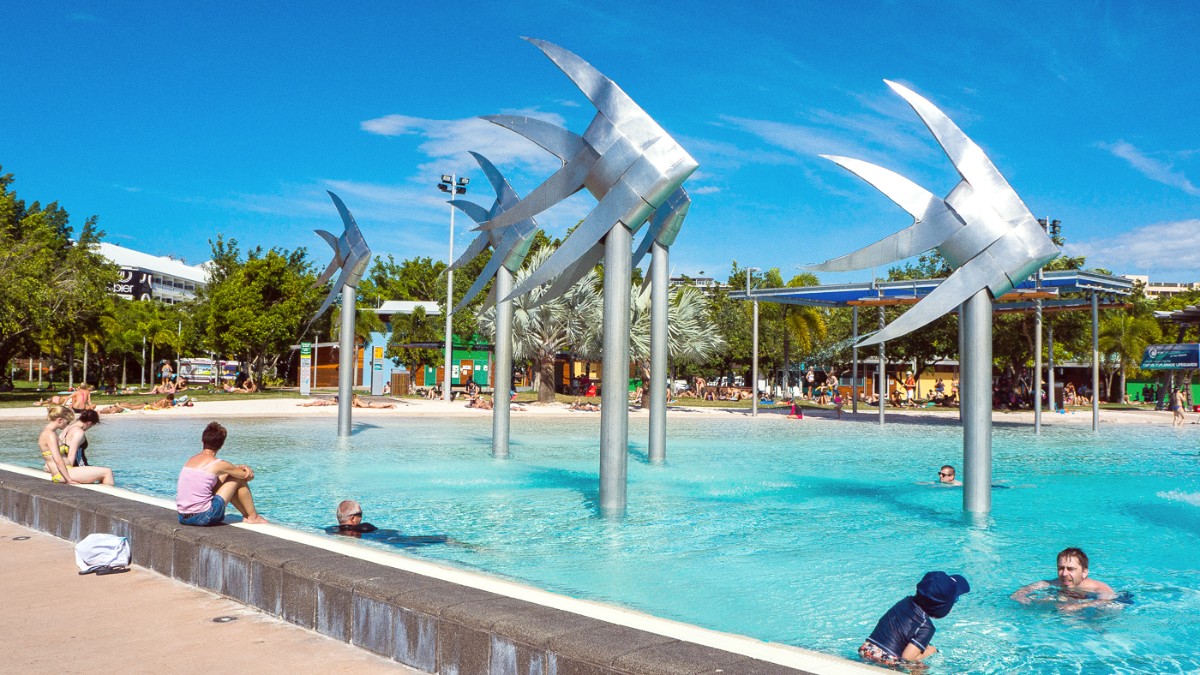
Queensland, Australia
The Great Barrier Reef Marine Park strictly guides protection of the reef's fragile ecosystems. The Wet Tropics of Queensland World Heritage Area protects the Daintree Rainforest. Many national parks surround Cairns.
Recycling bins are available in public areas and most accommodations. Reduce single-use plastics by carrying a reusable water bottle. Considerate water use is always encouraged.
Many airlines have Carbon offset programs. Look for eco-certified accommodation and tour operators like Ecobnb.
Sustainable practices contribute to preserving Cairns' natural wonders.
The Great Barrier Reef Marine Park guides protection of fragile ecosystems. The Wet Tropics of Queensland World Heritage Area protects the Daintree Rainforest.
Choose products with a lower environmental footprint.
Waste management and recycling practices are in place.
Support projects that reduce environmental impact.
Support operators committed to ethical practices, like G Adventures.
Explore G AdventuresContribute to conservation through organizations like The Rainforest Site (GreaterGood).
Visit The Rainforest SiteYour choices as a traveler contribute to a positive impact on the environment and local communities.
Support for cultural preservation efforts is important.
These initiatives work to preserve and share cultural heritage.
Be mindful of privacy in residential areas.
Your choices as a traveler contribute to a positive economic impact on the local community.
Dine at local restaurants and cafes rather than large international chains. Shop at local markets, like Rusty's Market.
Book tours through local operators or the Cairns Visitor Information Centre; they often promote local businesses.
Look for "made in Australia" labels for souvenirs to support the regional economy.
Avoid tours or activities that carry unethical interactions with wildlife, like animal performances or unnatural wild animal feeding. These pose risks to animal welfare and natural behaviors. Do not get involved in activities that exploit local people or natural resources.
Your choices as a traveler contribute directly to the local economy.
Seek businesses that practice fair trade and ethical sourcing.
Direct your spending to local establishments.
Ensure your animal encounters are ethical and sustainable.
Conscious decisions benefit the destination and its people.
Your financial decisions bolster the local community.
Visit Rusty's Market for fresh produce and local crafts. This supports local farmers and artisans.
Book tours directly through local operators or the visitor center. This keeps funds within the region.
Choose locally-owned restaurants and cafes. Your dining choices contribute to local jobs and businesses.
Prioritize animal welfare and local community well-being in all travel decisions. Confirm your activities align with these principles.
Traveling with consciousness and respect contributes positively to the destination and its inhabitants.